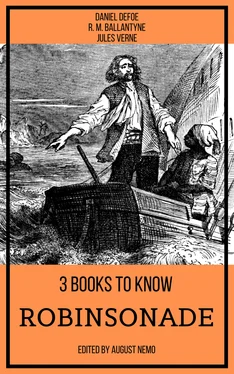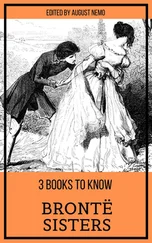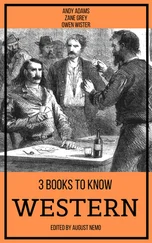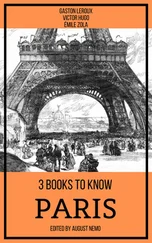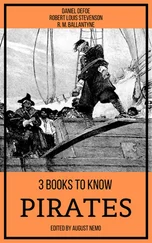My heart was filled with more delight than I can express at sight of so many glorious objects, and my thoughts turned suddenly to the contemplation of the Creator of them all. I mention this the more gladly, because at that time, I am ashamed to say, I very seldom thought of my Creator, although I was constantly surrounded by the most beautiful and wonderful of His works. I observed, from the expression of my companion’s countenance, that he too derived much joy from the splendid scenery, which was all the more agreeable to us after our long voyage on the salt sea. There the breeze was fresh and cold; but here it was delightfully mild, and when a puff blew off the land it came laden with the most exquisite perfume that can be imagined. While we thus gazed we were startled by a loud “Huzza!” from Peterkin, and on looking towards the edge of the sea we saw him capering and jumping about like a monkey, and ever and anon tugging with all his might at something that lay upon the shore.
“What an odd fellow he is, to be sure!” said Jack, taking me by the arm and hurrying forward. “Come, let us hasten to see what it is.”
“Here it is, boys — hurrah! Come along! Just what we want!” cried Peterkin as we drew near, still tugging with all his power. “First-rate; just the very ticket!”
I need scarcely say to my readers that my companion Peterkin was in the habit of using very remarkable and peculiar phrases. And I am free to confess that I did not well understand the meaning of some of them — such, for instance, as “the very ticket;” but I think it my duty to recount everything relating to my adventures with a strict regard to truthfulness in as far as my memory serves me, so I write, as nearly as possible, the exact words that my companions spoke. I often asked Peterkin to explain what he meant by “ticket,” but he always answered me by going into fits of laughter. However, by observing the occasions on which he used it, I came to understand that it meant to show that something was remarkably good or fortunate.
On coming up we found that Peterkin was vainly endeavouring to pull the axe out of the oar into which, it will be remembered, Jack struck it while endeavouring to cut away the cordage among which it had become entangled at the bow of the ship. Fortunately for us, the axe had remained fast in the oar, and even now all Peterkin’s strength could not draw it out of the cut.
“Ah, that is capital indeed!” cried Jack, at the same time giving the axe a wrench that plucked it out of the tough wood. “How fortunate this is! It will be of more value to us than a hundred knives, and the edge is quite new and sharp.”
“I’ll answer for the toughness of the handle, at any rate!” cried Peterkin; “my arms are nearly pulled out of the sockets. But see here, our luck is great. There is iron on the blade.” He pointed to a piece of hoop-iron as he spoke, which had been nailed round the blade of the oar to prevent it from splitting.
This also was a fortunate discovery. Jack went down on his knees, and with the edge of the axe began carefully to force out the nails. But as they were firmly fixed in, and the operation blunted our axe, we carried the oar up with us to the place where we had left the rest of our things, intending to burn the wood away from the iron at a more convenient time.
“Now, lads,” said Jack after we had laid it on the stone which contained our little all, “I propose that we should go to the tail of the island, where the ship struck, which is only a quarter of a mile off; and see if anything else has been thrown ashore. I don’t expect anything, but it is well to see. When we get back here it will be time to have our supper and prepare our beds.”
“Agreed!” cried Peterkin and I together, as, indeed, we would have agreed to any proposal that Jack made; for, besides his being older and much stronger and taller than either of us, he was a very clever fellow, and, I think, would have induced people much older than himself to choose him for their leader, especially if they required to be led on a bold enterprise.
Now as we hastened along the white beach, which shone so brightly in the rays of the setting sun that our eyes were quite dazzled by its glare, it suddenly came into Peterkin’s head that we had nothing to eat except the wild berries which grew in profusion at our feet.
“What shall we do, Jack?” said he with a rueful look. “Perhaps they may be poisonous!”
“No fear,” replied Jack confidently. “I have observed that a few of them are not unlike some of the berries that grow wild on our own native hills. Besides, I saw one or two strange birds eating them just a few minutes ago, and what won’t kill the birds won’t kill us. But look up there, Peterkin,” continued Jack, pointing to the branched head of a cocoa-nut palm. “There are nuts for us in all stages.”
“So there are!” cried Peterkin, who, being of a very unobservant nature, had been too much taken up with other things to notice anything so high above his head as the fruit of a palm-tree. But whatever faults my young comrade had, he could not be blamed for want of activity or animal spirits. Indeed, the nuts had scarcely been pointed out to him when he bounded up the tall stem of the tree like a squirrel, and in a few minutes returned with three nuts, each as large as a man’s fist.
“You had better keep them till we return,” said Jack. “Let us finish our work before eating.”
“So be it, captain; go ahead!” cried Peterkin, thrusting the nuts into his trousers pocket. “In fact, I don’t want to eat just now; but I would give a good deal for a drink. Oh, that I could find a spring! but I don’t see the smallest sign of one hereabouts. I say, Jack, how does it happen that you seem to be up to everything? You have told us the names of half-a-dozen trees already, and yet you say that you were never in the South Seas before.”
“I’m not up to everything, Peterkin, as you’ll find out ere long,” replied Jack with a smile; “but I have been a great reader of books of travel and adventure all my life, and that has put me up to a good many things that you are, perhaps, not acquainted with.”
“Oh, Jack, that’s all humbug! If you begin to lay everything to the credit of books, I’ll quite lose my opinion of you,” cried Peterkin with a look of contempt. “I’ve seen a lot o’ fellows that were always poring over books, and when they came to try to do anything, they were no better than baboons!”
“You are quite right,” retorted Jack; “and I have seen a lot of fellows, who never looked into books at all, who knew nothing about anything except the things they had actually seen, and very little they knew even about these. Indeed, some were so ignorant that they did not know that cocoa-nuts grew on cocoa-nut trees!”
I could not refrain from laughing at this rebuke, for there was much truth in it as to Peterkin’s ignorance.
“Humph! maybe you’re right,” answered Peterkin; “but I would not give tuppence for a man of books if he had nothing else in him.”
“Neither would I,” said Jack; “but that’s no reason why you should run books down, or think less of me for having read them. Suppose, now, Peterkin, that you wanted to build a ship, and I were to give you a long and particular account of the way to do it, would not that be very useful?”
“No doubt of it,” said Peterkin, laughing.
“And suppose I were to write the account in a letter instead of telling you in words, would that be less useful?”
“Well — no, perhaps not.”
“Well, suppose I were to print it and send it to you in the form of a book, would it not be as good and useful as ever?”
“Oh, bother! Jack, you’re a philosopher, and that’s worse than anything!” cried Peterkin with a look of pretended horror.
Читать дальше
